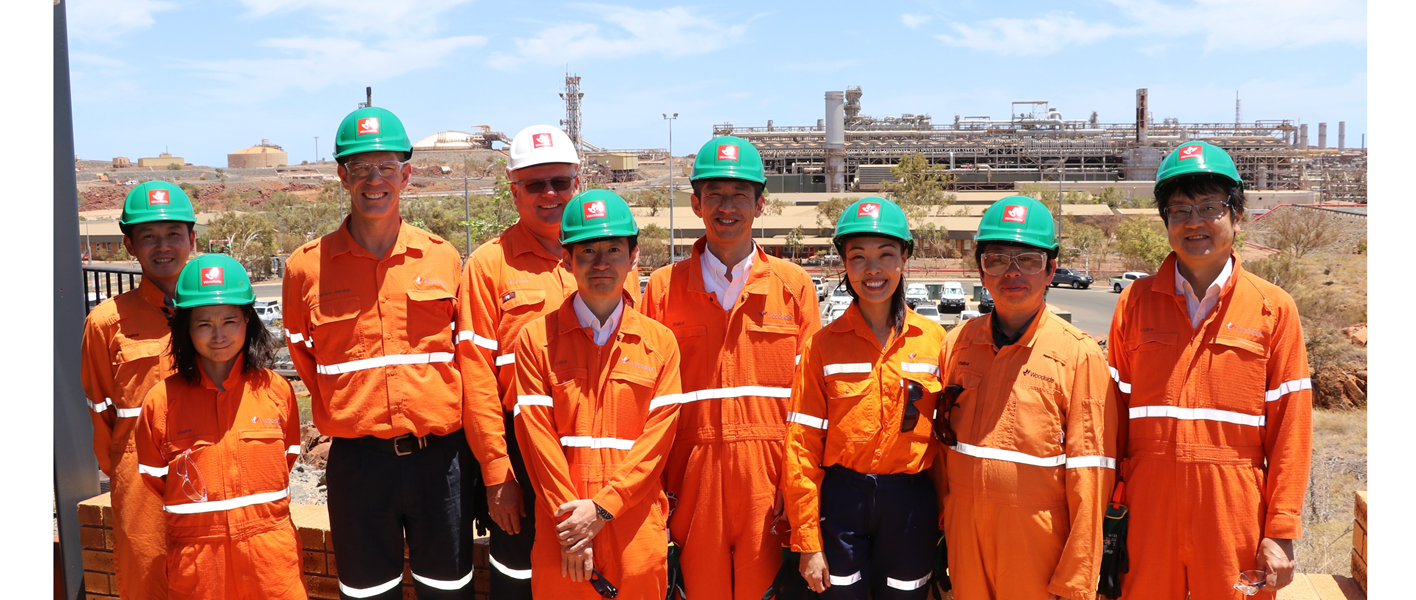Making headway with hydrogen
With the race to supply hydrogen becoming increasingly competitive on the global stage, we are investing in relationships and knowledge to improve our understanding of the role hydrogen can play in global decarbonisation.

Having recently received approval from Japan’s New Energy and Industrial Technology Development Organization (NEDO), Woodside together with Japanese companies JERA Inc, Marubeni Corporation and IHI Corporation will undertake a joint hydrogen feasibility study. The study will examine the large-scale export of hydrogen as ammonia for use decarbonising coal-fired power generation in Japan.
"Woodside and its partners have forged new energy pathways before and we can do so again."
Japan aims to cut greenhouse gas emissions by 26% by 2030 from their 2013 level and will join other countries in requiring lower carbon energy. We expect to see large-scale hydrogen production around the world by 2030 and we intend to be part of that.
Our relationships with Japan date back to the critical Japanese investment in the Woodside-operated North West Shelf Project in the 1980s, when Japanese buyers underpinned the project by signing long-term gas supply agreements. We have delivered safe, reliable, competitive LNG to Japan for over 30 years, and are well-positioned for complementary opportunities in hydrogen.
As part of the recently approved study, the partners will be investigating the transition between hydrogen production processes for export: from ‘blue’ hydrogen produced from natural gas through steam methane reforming, to ‘green’ hydrogen, produced through electrolysis, powered by renewable energy. Hydrogen from these processes will be combined with nitrogen to make ammonia, enabling shipping as a stable liquid at -30 degrees. Ammonia can be used directly for power generation without producing carbon emissions during combustion.
With an initial focus on blue hydrogen, we look to underpin a market in which infrastructure can be developed, helping accelerate the transition to green hydrogen once unit cost of production improves.
Japan isn’t alone in its interest in the use of cleaner fuel sources. Korea is also intending to increase use of hydrogen to meet its Paris Agreement targets. Last year we invested in Korean consortium Hydrogen Energy Network (HyNet) which plans to build and operate 100 hydrogen refuelling stations in Korea. Woodside has also signed a MoU with Pusan National University in Korea to jointly explore technology application across the hydrogen value chain.
We welcome the opportunity to participate in the study with JERA, Marubeni and IHI our partners in Japan to explore major at-scale export outcomes which deliver material decarbonisation to Japan, alongside our involvement in HyNet in Korea.
